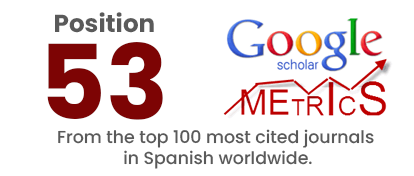Spiritual Journeys in Symbolic Language (A Study of the Differences and Similarities of Spiritual Journeys in Sohrewardi’s Treatises and Attar’s Mosibatnameh)
DOI:
https://doi.org/10.36097/rsan.v0i36.1214Keywords:
sohrewardi, mosibatnameh, treatises, four journeys, symbol, intellectAbstract
In most of mystical works, the wayfarer of the Path of Truth is in one stage of the journey. Human spirit or rational soul, after becoming conscious of its own loneliness in the world of darkness and the prison of body as well as its occidental exile visits to heavenly principle, which is the guiding angel, becomes aware of the obstacles in its way back to the Orient and its own existential origin. Four Journeys is one of those issues which has been taken into account in the works of great sages like Avicenna and renowned mystics. The current study was an effort for conducting a comparative study of the stages of Four Journeys in Sohrewardi’s treatises and Attar’s Mosibatnameh in view of their differences and similarities via a descriptive method. Through this study, it was intended to cast light on the importance of man’s knowledge of universe and himself focusing on acquired knowledge and external senses and inner perceptual faculties. The main hero of Sohrewardi in all of his treatises in guidance of man is intellect which emerges in the guise of a Spiritual Guide in order to guide the wayfarer. While in Attar’s Mosibtanameh, despite intellect, the role of prophets and particularly the Holy Prophet of Islam is highlighted in the guidance of man and his reaching to the destination of the journey. In fact, intellect in the views of both thinkers is Active Intellect or Tenth Intellect whose place is in human heart and Sohrewardi has used the beautiful term “Red Intellect” to refer to it.
Downloads
References
Holy Quran (1994), trans. Mohammad Mahdi Fuladvand, Seventh edition, Tehran, Office of Studies of History and Islamic Teachings.
Ibn Arabi, Mohammad Ibn Ali (1998), A Commentary of Fusus Al Hikam, annotated by Taj Al Din Hossein Kharazmi, edited by Hassanzadeh Amoli, First edition, Qom, Islamic Propagation Office.
Ashrafzadeh, Reza (1994), Manifestation of Mystery and Narration in the Poetry of Attar of Nishabur, First edition, Tehran, Asati Press.
Idem (1997), Hat of Headless, First edition, Mashhad, Saleh Press.
Ansari, Abdullah (1994), A Commentary of Gulshane Raz, annotated by Abdorazzaq Kashani, inscribed by Ali Shirvani, First edition, Al Zahra Press.
Purnamdarian, Taqi (1997), Mystery and Mystical Stories in Persian Literature, Second Edition, Tehran, Elmi va Farhangi Press.
Hafeza, Shams Al Din Mohammad (1988), Hafez Collected Poems, edited by Mohammad Qasem Qazvini Ghani, First edition, Mohammad Press.
Rashid AL Din Meibodi, Abulfazl (1995), Singer of the Party of the Men of Heart, selected and reported by Reza Anzabinezhad, First edition, Tehran, Modern Sciences Publishers.
Ritter, Helmut (1998), Sea of Spirit, trans. Abbas Zaryab Khoei and Mehr Afaq Baybordi, Second edition, AlHoda Press.
Zarinkoob, Abdulhossein (2001),Voice of the Wing of Simurgh, Tehran, Sokhan Press.
Sajjadi, Seyed Jafar (1997), A Commentary of Sohrewardi’s Treatises, First edition, Tehran, Institute of Islamic Culture and Art, Tehran.
Shohrewardi, Shahabaddin Yahya (1993), Collected Works, Edition and introduction by Seyyed Hossein Nasr, with a Prologue by Henri Corbin, Third Volume, Second Edition, Tehran, Institute for Humanities and Cultural Studies.
Attar, Mohammad Ibn Ibrahim (2009), Mosibatnameh, edited and annotated by Mohammad Reza Shafei Kadkani, Fifth Edition, Tehran, Sakht Press.
Ghani, Qasem (2014), History of Sufism in Iran, Twelfth Edition, Zavvar Press.
Qobadi, Hosseinali, Beiranvandi, Mohammad (2007), Path of Mirror, First edition, Tarbyyat Modarres University Press.
Lahiji, Mohammad (n.), A Commentary of Golshan Raz, with an introduction by Keyvan Sameei, Mahmoudi Press.
Naraqi, Mulla Ahmad (n.), Meraj Al Saadah, Javidan Press.
Moein, Mohammad (2006), One Volume Dictionary of Persian Language, First Edition, Tehran, Ashja Press.
Mulla Sadra, Al Hikmat Al Mutalyah (1981), Third Edition, Beirut, Dar Ehya Al Turath.
Rumi, Jalal Al Din Mohammad (2011), Spiritual Couplets better known as Masnavi, Second edition, Tehran, Esharat Talaei Press.


















